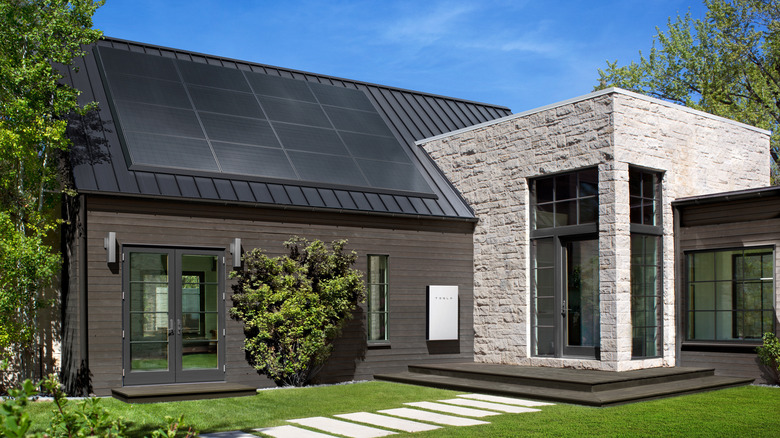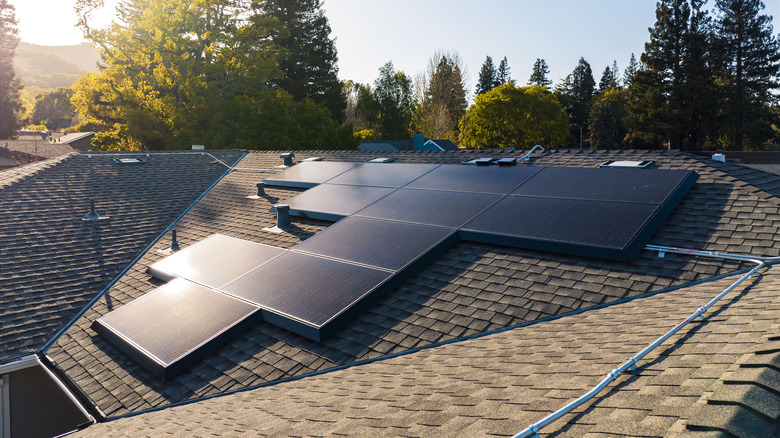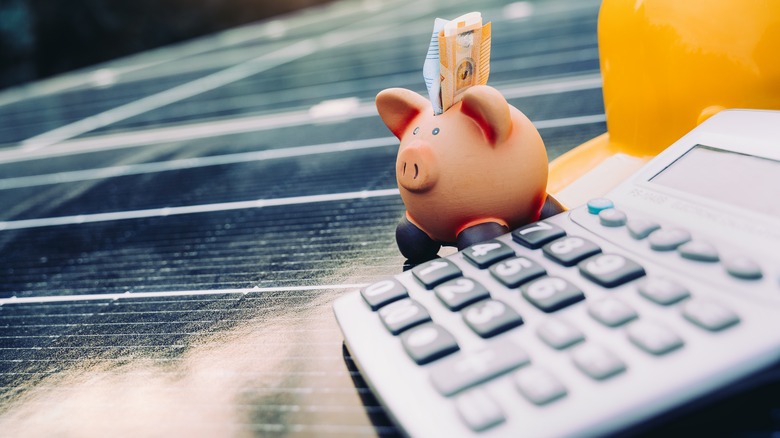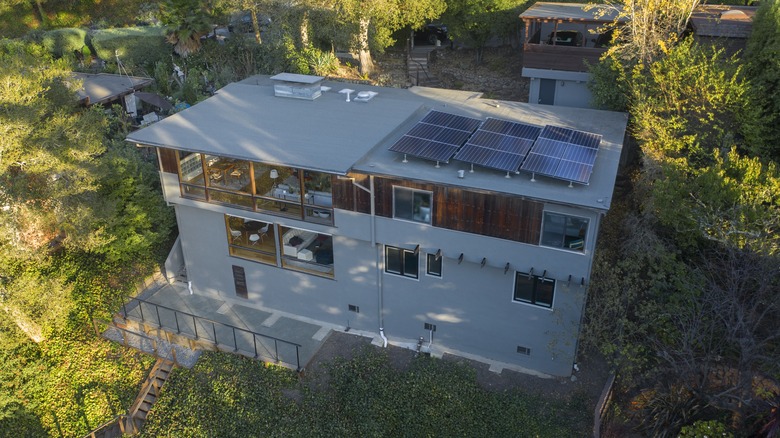Everything You Need To Know About Tesla Solar Panels In 2024
Switching from traditional energy sources to solar requires a substantial investment, but it pays off. Expert estimates suggest it takes about ten years for solar panels to pay for themselves, though you'll break even on your investment even earlier if you qualify for the solar panel tax credit, which can reach up to 30%. Either way, you can count on virtually free electricity for two to three decades, since that is the typical lifespan of a solar panel system.
If you're considering installing solar panels on your property, you've probably already done a bit of research about the potential benefits and drawbacks, and narrowed the list down to a few companies. Tesla is likely among them, as one of the biggest players in the market, with a presence in all 50 states. But just how good are Tesla's solar panel systems? Here's everything you need to know about Tesla solar panels in 2024.
Are Tesla solar panels expensive?
With solar panels, you have to take multiple factors into consideration, so only rough estimates can be made. Tesla is sometimes perceived as a premium brand, but Tesla solar panels are actually reasonably priced, if not more affordable, than those of their competitors. Here's what that means, in more practical terms.
Tesla solar panels cost around $2.50 per watt on average. Pricing may vary depending on whether your solar panel system is installed directly by Tesla, or a certified contractor. Plus, Tesla offers a price match guarantee — if a different company quotes you a lower price, Tesla will match it. Conditions apply, of course, so make sure to review Tesla's price match guarantee before making a decision.
Tesla solar panels are a good budget-friendly option, but you should keep in mind that installing a Tesla Powerwall (basically a giant battery to store excess power your panels generate) would run you between $9,000 and $13,000. The hidden costs of solar panels also need to be considered.
Purchasing Tesla solar panels
If you opt for Tesla solar panels, you can place an order online. Enter your home address and your monthly electric bill, then choose the "Solar Panels + Powerwall" option (unless you're looking to invest in a Tesla solar roof). Tesla will provide an estimate based on the information you share, but you can edit the system size and number of Powerwalls based on your needs.
It might be a good idea to schedule a virtual consultation beforehand so that you know exactly what to expect.
Tesla offers two payment types, cash and financing. With a cash purchase, you pay the full cost at the time of inspection. This is the best and easiest option, though it's obviously not for everyone. As for financing, the payments are monthly, while the first one is due 35 days after your solar system receives a Permission to Operate (PTO). Assuming you have an excellent credit score, you won't have to provide a down payment.
Regardless of which option you choose, you will get a "10-year comprehensive and 25-year panel performance warranty," according to Tesla.
The downsides of Tesla solar panels
By far, the most common complaint about Tesla solar panels online has nothing to do with the products themselves, but with the company's customer service. Social media sites like Reddit are flooded with complaints. One person described the whole process as a "nightmare," while another accused Tesla of being extremely unresponsive.
In a detailed post, a Redditor said they had a "terrible customer experience, like the worst I have ever encountered," noting that there is "no way to expedite a resolution on anything." Describing Tesla's customer service as "absolutely horrid," a commenter said they have been "warning people considering Tesla to go somewhere else."
If you just Google the term "Tesla solar panels customer support" you will come across hundreds of similar complaints, which suggests that Tesla may indeed be lacking in this department. As CNET notes, it's not that there aren't complaints about other major solar installers, but it certainly appears that Tesla is the worst offender.



